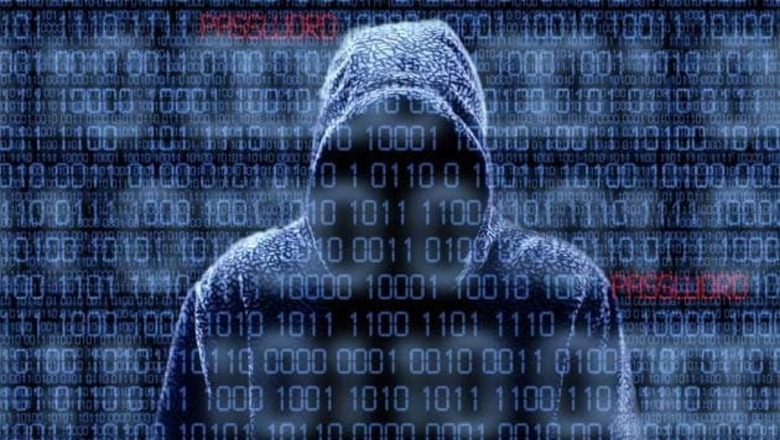
views
Nowadays, financial transactions have become more web based and electronic exchanges or use of Debit and Credit cards are the go-to mode of transactions. However, with this advancement, notorious hackers have found ways to beat the system and commit theft of e-money, frauds, etc.
The Reserve Bank of India (RBI) came up with draft regulations dealing with banking fraud last year and has officially released these regulations wherein RBI has explicitly laid down the extent to which a customer will be liable in case of an unauthorized transaction/ fraud in the following 3 circumstances - due to the customer's negligence, deficiency/fault in the banking system or due to a third party breach.
As per RBI, electronic transactions can be categorised into 2 ways:
1. Remote/ Online transactions allude to those transactions that don't require the instruments of payment (i.e. currency, Debit/Credit card, etc.) to be displayed physically at the time of a transaction e.g. mobile/net banking, wallets, UPI and so on.
2. Face-to-Face/ Proximity transactions refer to those transactions that need the instruments of payment to be physically present at the time of the transaction e.g. the presence of a Debit/Credit Card is a must during an ATM transaction.
Extent of customer liability is determined based on negligence of the customer or bank or third party. Let's understand these one by one:
I. Negligence of Customer
In circumstances where the bogus transaction has occurred because of the customer's carelessness i.e. the payment details or passwords were shared by the customer with someone else, then until this transaction is reported to the bank, the entire loss will be borne by the customer. However, once the transaction in question is reported to the bank, loss from any fraudulent transaction thereafter will be borne by the bank.
II. Negligence of Banking System
The customer will have absolutely no liability in circumstances where the bogus/ unauthorised transaction occurs because of the carelessness of the bank. In this case the customer doesn't even have the obligation to report the fake transaction to the bank. However, it is advisable to keep a close check on all your e-banking accounts and report any suspicious behavior immediately to your bank.
III. Third Party Breach
When an outsider or third party commits a fraud it eludes to those situations where the inadequacy lies neither with the bank nor with the customer.
In such cases, the extent of liability of the customer depends on when he reports the issue from the day of receiving communication of such transaction from the bank.
1) If the customer reports the unauthorized exchange within 3 days from the receipt of communication from the bank, the liability of the customer will be Zero.
2) If the customer reports the unauthorized transaction in 4 to 7 days from the receipt of communication from the bank, the customer's per transaction limit will be capped, different accounts will have different capped limit, details of which can be taken from the bank officials.
3) If the customer reports the unauthorized transaction in 7 days from the receipt of communication from the bank, the risk/ liability will be decided depending on the policies of the bank.
The number of days should be considered as per the working calendar of the home branch barring the date of receiving communication. Furthermore, the date of receiving communication implies the date when you get SMS, email or the bank explanation that gives you the knowledge about the unauthorized transaction. The earliest communication received has to be considered, on the off chance that you get communicated by the bank in various ways.
Who decides the Liability?
As is clear from above that the extent of your i.e. customer's liability is dependent upon the fact as to whose fault it was. Banks clearly wouldn't want to bear the entire loss themselves and would want that the customer should share the loss be it due to the fact that the unauthorized transaction took place due to the negligence of the customer or it was the result of a third party breach, however in order to do so, the burden of proving the carelessness of the customer, is on the bank.
5 Things You Must Know About Reversal of Fraudulent Transactions:
1) The RBI circular also stated that banks must refund the amount of the unapproved transaction in the customer's bank account within 10 days from the date when the client reported the unapproved transaction to the bank. However, this can only be possible after determining the extent of customer liability.
2) Banks have the choice to defer any liability of customer that occurred due to the carelessness of the client, try not to wager on it though.
3) After a proper investigation and determination of customer liability the complaint needs to be resolved within 90 days.
4) Banks also guarantee that no loss of interest or additional loss, in case of credit card fraud is incurred to the customer.
5) Such fraudulent/ unapproved transactions can be reported via different channels like online, telephone, SMS, email, etc. and all of these modes usually provide a 24x7 access.
What Can Customers Do to Avoid Banking Frauds?
The banks have done their part and so should the customers, by doing the following:
1) Register your working mobile number with your bank so as to receive SMS/Email alerts regarding transactions.
2) Check the emails and messages received from the bank, regularly.
3) In case you find any suspicious or unapproved transaction that you can't place, consult and report to the bank, immediately.
4) Never share your banking User Id, Password or OTP (One Time Password) with anyone. No bank official will ever call you for these details.
5) Never share your Debit Card/ Credit Card Number or the numbers displayed at their back with anyone as you may end up losing money and be held responsible at the same time.


















Comments
0 comment